Signs of Hormonal Imbalance After Abortion
As women navigate the complex and deeply personal decision of abortion, it is crucial to acknowledge that this choice can have varying effects on their
As women navigate the complex and deeply personal decision of abortion, it is crucial to acknowledge that this choice can have varying effects on their

With surging research in abortion modalities, things have become easier for people seeking medical termination of pregnancy, surgical interventions do not remain the mainstay option anymore, and there are a plethora of alternatives in oral medications which could be used for early abortion. However, this convenience comes with a minor payload, and pregnancies terminated via medicines result in a period of bleeding through the vagina. Although surgical abortion also has post-operative bleeding, it is less in intensity.

Medical abortion works by using a combination of medications to terminate a pregnancy. The process typically involves two types of medication: mifepristone and misoprostol.
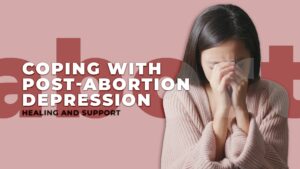
Experiencing a range of emotions, such as grief and depression, after having an abortion is a common and natural response. However, it’s important to know that healing and recovery are achievable.
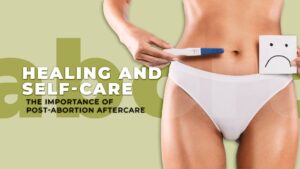
Ensuring adequate self-care is crucial for maintaining both physical health and emotional well-being after an abortion.

There are numerous misunderstandings about abortion procedures that can have an impact on societal attitudes towards them. However, the reality is that abortions are safe procedures, with 95% of women who undergo them reporting that they believe it was the best decision for them. Additionally, having an abortion does not affect fertility, is less risky than carrying a pregnancy to term, and typically does not result in any long-term negative effects on mental health for the majority of women.

Medical abortion, also known as medication abortion, is a non-surgical method of terminating a pregnancy using medications. While it is generally considered safe and effective, there are potential risks and complications that individuals should be aware of. These can include excessive bleeding, infection, incomplete abortion, and adverse reactions to the medications.

The cost of an abortion depends on several factors, such as the pregnancy stage and type of care required. In addition to the core expenses, individuals seeking abortion services may also incur additional costs such as medication, sedation, travel, accommodations, and childcare.

When starting a new birth control method, it’s important to understand how long you need to wait before you can rely solely on it for pregnancy prevention. Wait times vary depending on the method and when you start using it. In general, condoms should be used for at least 7 days as a backup method when starting any form of birth control.

Although many believe that taking birth control pills can lead to larger breasts, the link between the two is not straightforward. While some women may notice a slight increase in breast size due to hormonal changes from birth control, it is not a guaranteed effect, and any growth is typically minimal and temporary. Other factors, such as weight gain, pregnancy, and menopause, can also influence breast size. If you have concerns about any changes in your breast size or overall health while taking birth control, it’s best to discuss them with your healthcare provider.
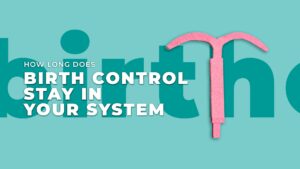
It’s recommended to wait for three months to see a return to normal after stopping estrogen-containing contraceptives like the pill. Long-acting reversible contraceptives like the hormonal intrauterine device typically don’t impact fertility, while the Depo-Provera shot can take up to 18 months to wear off.

Experiencing mood changes while using birth control can be frustrating and overwhelming, but it’s important to remember that there are ways to manage these symptoms. Coping strategies like self-care, therapy, and relaxation can all help improve your mood and reduce stress. Whether you’re trying a new type of birth control or simply looking for ways to manage your symptoms, these coping strategies can help you feel your best. By taking steps to care for your mental health, you can feel more in control and enjoy the many benefits of birth control.

Are you considering a second-trimester abortion and want to know more about the medical procedures, risks, and legal and ethical issues surrounding this decision? Look no further, as this article provides a comprehensive overview of second-trimester abortion, its associated risks and side effects, and the importance of access to safe and legal abortion.
Second-trimester abortion is a complex issue involving medical, legal, and ethical considerations. Ongoing efforts to expand access to safe and legal abortion, reduce stigma, and improve education and awareness about reproductive health can help ensure that individuals have the resources and support they need to make the best decisions for themselves and their families.

Learn the abortion laws in different states of the United States and how they vary concerning the timing of when a surgical abortion is considered too late. Most states allow surgical abortions up to 24 weeks of pregnancy, with some allowing up to 28 weeks or even later in certain circumstances. However, a few states have passed laws that prohibit abortions after a certain point in pregnancy, ranging from 15 weeks to as early as six weeks after conception.

While rare, it is possible for an abortion to not effectively terminate a pregnancy or for residual tissue to be left in the uterus. It is essential to understand these potential hazards and know the appropriate course of action if they occur.

Abortion is a deeply personal decision that many individuals face at some point in their lives. While safe and effective medical procedures are available, some may turn to home remedies as an alternative. While the MTP Kit is a well-known and effective method of inducing a medical abortion, other home remedies can be dangerous and ineffective.

Abortion pills are a safe and effective method for ending a pregnancy. While there are potential risks and side effects associated with abortion pills, the risk of damage to the womb is rare.

Taking high doses of vitamin C does not induce abortion. Regardless of your location, there exist safer methods to terminate a pregnancy within the comfort of your own home.
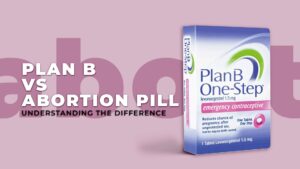
Plan B is an emergency contraception pill that works by preventing ovulation and is not intended to terminate a pregnancy. The abortion pill, on the other hand, is used to terminate an existing pregnancy and must be prescribed by a healthcare provider.

Abortions are a method of ending a pregnancy medically. The procedure may result in some discomfort or cramping, but it is typically manageable. The experience of pain during an abortion can vary from person to person and depends on several factors, including the stage of pregnancy, type of abortion procedure, and individual pain tolerance. While some people report feeling pain during an abortion that is similar to menstrual cramps, others may experience more intense pain similar to labor contractions. However, anesthesia and pain management techniques can help minimize pain during the procedure.
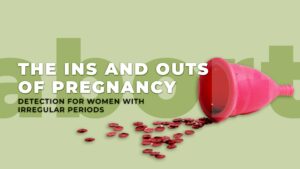
There are several ways to detect pregnancy when you have irregular periods. One way is to use a home pregnancy test to detect the presence of the hormone human chorionic gonadotropin (hCG) in urine. These tests are usually accurate a few days after a missed period, but it is best to confirm with a healthcare provider. Another way to detect pregnancy is through a blood test, which can detect hCG levels and may be able to detect pregnancy earlier than a home pregnancy test. Additionally, a pelvic exam or ultrasound can also detect pregnancy. It is always best to consult with a healthcare provider for personalized advice and guidance.

D&C is generally considered to be more reliable for ending a pregnancy than the abortion pill, especially in the later stages of pregnancy. It is usually done in a clinic or hospital, whereas the abortion pill can be done at home with medical supervision. D&C may have a slightly higher risk of complications than the abortion pill, but these risks are generally low. The abortion pill may have more side effects, such as cramping, bleeding, and nausea, compared to D&C.

You’ve just received a positive pregnancy test result, and you’re feeling overwhelmed with a range of emotions. What should you do next? It’s common for

After an abortion, one may question how to properly care for themselves. The recovery process can vary depending on the stage of pregnancy and the method of abortion used. Abortion complications are uncommon when performed safely, however, they can include issues such as incomplete abortion, bleeding, infection, perforation of the uterus, complications related to anesthesia, and uterine rupture. It is important to note that post-abortion care should be provided in all cases, following international human rights laws and medical best practices, regardless of the legal restrictions in a specific area.

After an abortion[5], it is common for a woman’s menstrual cycle to be disrupted for a while. The duration of menstrual bleeding can vary depending on the type of abortion and the individual woman’s body. Following a successful abortion, it is typical for your first menstrual cycle to resume in about 4 to 8 weeks. It’s common for the initial few periods to be prolonged and more substantial than your regular cycles.

The abortion pill (mifepristone and misoprostol) is a safe and effective method of ending a pregnancy in the early stages. The abortion pill is not known to cause infertility. The abortion pill works by blocking the hormone progesterone, which is necessary for pregnancy to continue.[1] This causes the lining of the uterus to break down and the pregnancy to end. The misoprostol causes the uterus to contract and expel the pregnancy tissue.
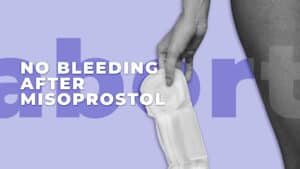
Medication abortion typically involves taking two medications, mifepristone and misoprostol, which prevent the pregnancy from developing further and cause the uterus to empty, ending the pregnancy. The effectiveness of medication abortion decreases the longer someone is pregnant, and after 12 weeks, effectiveness seems to decrease. Medication abortion is considered very safe, with less than 2% of medication abortions causing complications.

Misoprostol is a strong drug, and post-care is highly recommended. After taking misoprostol, especially for a medical abortion, your body will be working hard. It

Abortion at 10 weeks or in the first trimester, also known as an early abortion, is the ending of a pregnancy within the first three months. This can be done through medication or surgery, and both methods usually require less care and follow-up than later abortions. Additionally, early abortions are typically more cost-effective than those performed in the later stages of pregnancy.

The use of Misoprostol for cervical preparation before inserting an IUD in women who have not given birth does not make the process easier or less painful. In fact, it may even increase reported pain. Despite this, healthcare providers do not find IUD insertion in nulliparous women to be challenging, and patients find the pain to be manageable.

It’s normal to have concerns about the impact of a previous abortion on your ability to conceive, regardless of whether it was 10 years or

After an abortion, it is common to have questions about resuming sexual activity and the potential impact on future pregnancies. It’s important to wait until your body has fully healed before engaging in sexual activity and to use contraception to prevent unintended pregnancies. Pain, discomfort, and emotional concerns may also arise, but talking openly with your partner and healthcare provider can help address these issues.

Incomplete abortion after taking misoprostol can occur when the process of terminating a pregnancy is not fully successful. This can be indicated by a number of signs and symptoms such as persistent or heavy bleeding, cramping and pain, presence of tissue or clots, no change in pregnancy symptoms, and a persistent positive pregnancy test. It is important to seek medical attention if any of these signs are present as a healthcare provider can confirm whether the abortion is complete or if further treatment is needed.

Having to take a pregnancy test can be an emotionally overwhelming procedure. It doesn’t matter if you want the result to be positive or negative. Many women wonder how many days after sex can they test. Well, to answer it in simple words, wait for at least a week after your missed period. This is because many factors may affect the results if you take it too soon. The pregnancy tests detect the presence of human chorionic gonadotropin hormone in the body that is released only during pregnancy. The commonly used urine test kits do not detect low levels of hCG that are present during the early stages of pregnancy. Blood tests are more sensitive in comparison.

The correct option for terminating a pregnancy depends on how far along you are in your pregnancy, what type of pregnancy you have, and your health status. The efficiency of abortion pills for ending an early pregnancy is favorable, with rare cases of any severe complications. A combination of Mifepristone & Misoprostol is administered. However, the use of only Misoprostol has also been observed to be effective in pregnancies under seven weeks. The medications available for an ectopic pregnancy is a combination of Methotrexate with Misoprostol.

The stigmatized status of abortion can influence the decision many women have to face and the concerns are greater when aborting a twin pregnancy. A twin pregnancy can be terminated by the use of medications for up to 12 weeks, and after 12 weeks of pregnancy, a surgical procedure is used for aborting a twin pregnancy. The recovery period is similar to that of a singleton pregnancy abortion.

An abortion generally gathers a lot of panic around it, with its duration of safety being only up to nine or eleven weeks (64-76 days)[1]. The most recommended duration for termination, however, is the first month[2] and complications in the process only increase after that. Medical abortion is usually safer, but chances of infection are still there, even if only a tenth of that of any surgical abortion[3]. The signs of infection after an abortion may present as lower abdominal pain, unusual discharge, chills or fever, etc. To avoid any such chances, the use of antibiotics is promoted today, and justifiably.

Medical abortion is the technique to terminate a pregnancy within the first 10 weeks, using a combination of two medications. The procedure resembles that of

Life could be throwing a lot at you at times, and unwanted pregnancies could be a part of that. What’s disheartening here is that there

Other than misoprostol and mifepristone, methotrexate is another substance that can be used to induce an abortion. As an abortion pill, methotrexate is used along with misoprostol to terminate a pregnancy.

Tweaking the womb has always had its very own effects – from deliveries to abortion. The effects are mostly mild, but with different people, it

Abortion is a procedure that is most effective when done during the early stages of pregnancy. It is very common to be concerned about whether

Free delivery for $150+
Hassle free delivery
We are available 24/7
100% Secure payments